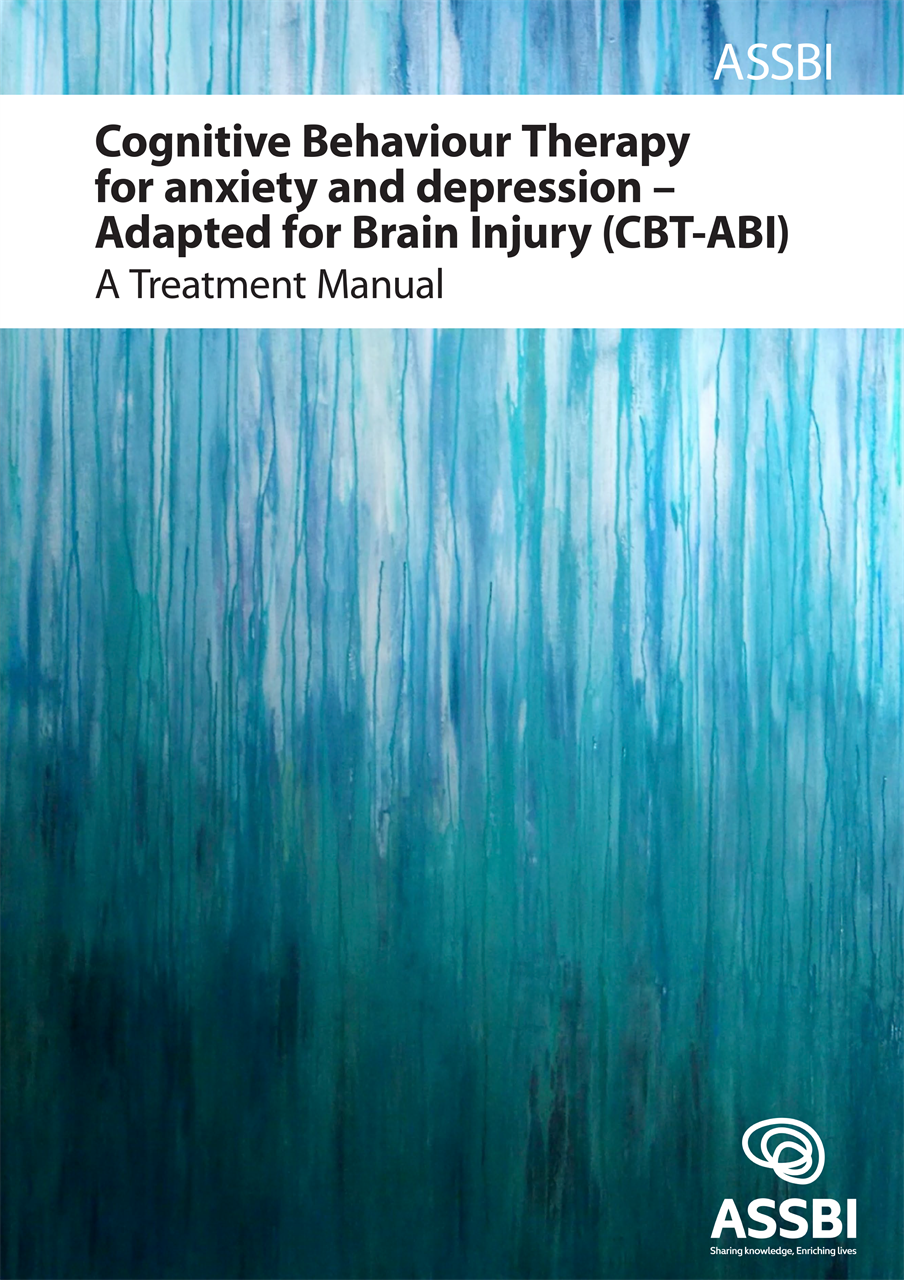| Cognitive Behaviour Therapy for anxiety and depression - Adapted for Brain Injury Written by Dana Wong, Ming-Yun Hsieh, Adam McKay, Kerrie Haines, Meaghan O'Donnell & Jennie Ponsford This evidence-based therapist manual is suitable for use with adults with depression and/or anxiety following traumatic brain injury*. The manual provides detailed guidance on both content and processes for delivering Cognitive Behaviour Therapy that have been specifically adapted and tailored for people with brain injury-related cognitive impairment. These adaptations include frequent repetition of information, regular reflective summaries, simplification of cognitive restructuring techniques, use of written/visual/electronic memory aids, co-therapy with family members, increased support with setting and completion of homework tasks, and inclusion of booster sessions after the main block of therapy. The CBT-ABI program consists of core and optional Cognitive Behaviour Therapy modules, each of which has its own set of handouts that are provided in both printed and electronic format. A treatment decision tree is provided to assist therapists in selecting appropriate modules for the presenting symptoms, as well as general tips for delivering Cognitive Behaviour Therapy sessions effectively with people with brain injury. The CBT-ABI modules include:
The manual is written in a practical, user-friendly way with tips for therapists to optimise their adapted Cognitive Behaviour Therapy practice with people with brain injury. Links to videos demonstrating CBT-ABI skills are provided. The CBT-ABI program has been evaluated in a randomised controlled trial which demonstrated that it was effective in improving depression and anxiety symptoms in adults with traumatic brain injury. This trial found that the inclusion of booster sessions, delivered 9 weeks after the Cognitive Behaviour Therapy program ended, was important for significant treatment gains to be observed. *Note: The CBT-ABI program could also be used with people with other forms of acquired brain injury, however it has not yet been evaluated in a non-traumatic brain injury cohort. |




